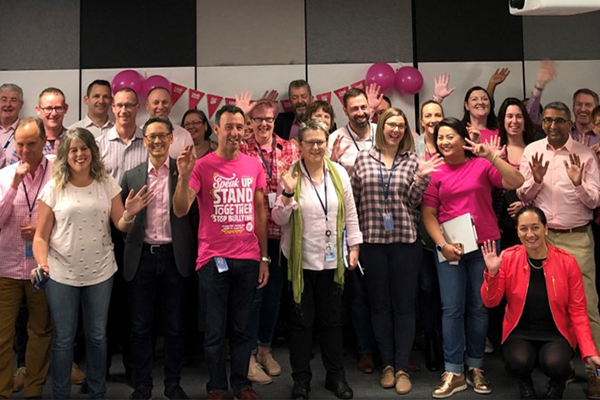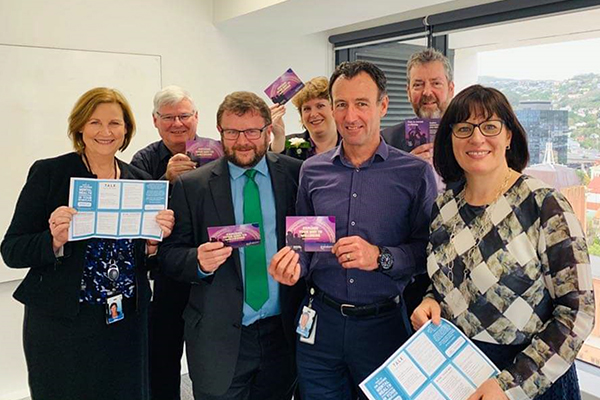Finalist
“I want everyone to know that it’s okay to talk about mental health and wellness in our organisation. Starting the conversation is vital: together, let’s make DIA a place where this is a priority.”
With that commitment in 2018, Department of Internal Affairs - Te Tari Taiwhenua (DIA) Chief Executive Paul James launched a new wellbeing programme for the 2750 staff in his department.

Delivered via video and on a Wellbeing Hub that provided existing tools and resources to boost workforce wellbeing, the launch was followed by staff surveys to help plot the path ahead.
“The findings helped us to understand that our people lead busy lives consisting of many layers and are shaped by their home, community and work lives and how they feel emotionally, physically and spiritually,” says Human Resources General Manager Lesa Kalapu. “These layers interweave to shape our people and their ability to be themselves at work.”
The next step was to seek the support of specialists. The department established a partnership with Umbrella, a group of clinical psychologists that specialise in wellness and resilience training.
In consultation with Umbrella, and with the backing of department leaders, the Wellbeing at Our Place – Tō Tātou Rohe programme was established.
The programme aims to strengthen the physical, mental and emotional wellbeing of the workforce, to build mental health and wellbeing resources, increase resilience and train leaders and staff to support one another.
“By recognising and supporting the needs of our people, we can help them to feel safe, strong and enabled to bring their whole self to work,” says Lesa.
In November 2019, the new Mental and Health Wellbeing strategy was introduced to more than 300 department leaders in a series of hui held nationwide.
“We knew the importance of sharing this strategy with our leaders as their support will help build an organisation and culture that promotes wellbeing,” Lesa says.
The first service launched offered department leaders one-to-one sessions with a clinical psychologist, providing support so they can confidently address issues their people may be struggling with.
A Peer Support Network (PSN) was piloted within Ministerial Services (a DIA business group that provides a range of services to the executive arm of government). Volunteers were interviewed, selected and trained to offer an additional channel for those who prefer to speak to a trusted colleague about their mental health or wellbeing.
Now the initiative is being launched DIA-wide.
The arrival of Covid-19 and the resulting rapid changes to people’s way of working gave an extra focus to mental health and wellbeing. With Umbrella, DIA delivered workshops and practical resources to help people to feel connected and supported to share their experiences.
“The additional training and support that our people received during Covid-19 benefited them with practical skills and resources that they could use straight away,” says Lesa.
Leaders were provided with a “message map” on how they could communicate and support their people during a challenging time for all.

In a range of other initiatives, clinical-psychologist sessions were offered to all staff, resilience workshops were held online, and a team of domestic-violence first responders established to provide confidential support for anyone who needed it. Chief Executive Paul James regularly reinforces the importance of people’s wellbeing, and leaders are given coaching and support to identify and address issues.
Staff also have access to Speaking Up, an initiative that provides multiple channels of support, including a confidential feedback form for Paul James and an invitation to email him directly. All the wellbeing initiatives are communicated across multiple channels, including the Chief Executive’s weekly message to all staff, newsletters, posters and intranet stories.
DIA’s 2020 Wellbeing Assessment has shown that most staff (76 per cent) could be classified as “thriving” or “managing well”. People were most positive about DIA having a strong sense of community and encouraging a healthy work/life balance.
Lesa says this shows DIA is engaging well with many of its people in ways that resonate with their own values. “This is critical in terms of providing our people with intrinsic not just extrinsic reasons to work for DIA.”





